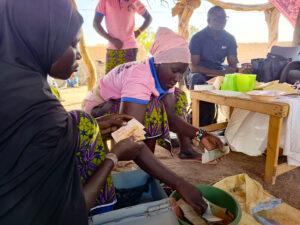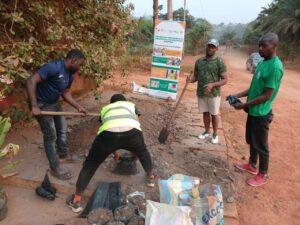Every April 22, the world celebrates International Mother Earth Day. The day was established on April 22, 1970, when twenty million Americans, led by environmental activist and U.S. Senator Gaylord Nelson, took to the streets to demonstrate against industrial pollution, loss of biodiversity and other environmental problems. Since then, Earth Day has become a global event, celebrated by over a billion people around the world. The United Nations General Assembly designated April 22 as International Mother Earth Day in resolution A/RES/63/278, adopted in 2009.
The theme of Earth Day 2024 is“Planet vs. Plastics” and is based on a clear and ambitious goal: to reduce plastic production by 60% by 2040, as underlined by the slogan “60×40”. A crucial objective to ensure a plastic-free future for generations to come. To achieve this goal, we need to focus immediately on human health, which is seriously threatened by the toxic chemicals released by decomposing plastics.
The celebration of this day is a key moment to reflect on the impact of our actions on the environment in which we live. Earth Day reminds us that every choice, big or small, can have a significant impact on planet Earth.
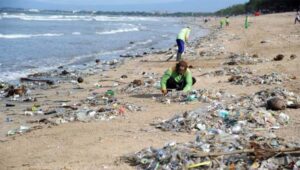
Nature is suffering and sending us strong signals that we can no longer ignore. The oceans are filling up with plastic and becoming increasingly acidic. Extreme heat, forest fires, floods and other weather phenomena affect millions of people.
On this day, INADES-Formation Togo calls for the effective application of Decree No. 2011-003/PR of January 5, 2011 setting out the management of plastic bags and packaging in Togo. Article 2 of the decree prohibits the production, import, distribution and marketing of non-biodegradable plastic bags and packaging. Article 3 authorizes the production, import, marketing, use, collection and recycling of biodegradable plastic bags and packaging; bags for medical and pharmaceutical use; bags used in agricultural activities and non-toxic food bags.
Article 8 of the aforementioned decree prohibits all users from burning, burying or disposing of biodegradable or non-biodegradable bags and packaging in places that are not intended for landfill sites authorized by municipal services and the environment department. The use of chemical packaging to contain food products is also prohibited (article 12).
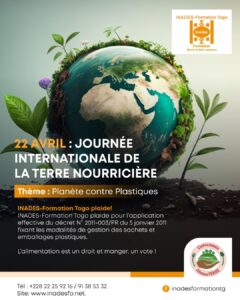
Climate change and other environmental disturbances caused by human activities, particularly those affecting biodiversity such as deforestation, land-use change, intensive farming and livestock breeding, and illegal wildlife trade, are all factors accelerating the deterioration of our environment. The erosion of biodiversity is a complex phenomenon influenced by many factors, among which the use of synthetic chemical pesticides plays a significant role.
To boost productivity, conventional agriculture encourages the excessive use of synthetic chemical inputs. However, as these products are exogenous to natural agrosystems and dangerous, they are singled out for their damaging effects on biodiversity, the environment, climate and human health. They are denounced for their contribution to soil and water pollution, greenhouse gas emissions and the destruction of biodiversity. A diet based on the intensive use of synthetic chemical inputs is said to be the cause of various illnesses in farmers, farm workers and consumers that were previously non-existent.
For INADES-Formation, the toxicity of synthetic chemical pesticides for the environment and humans is an obstacle to the right to adequate food. This is why the AlimenTERRE awareness campaign was launched, to contribute to the realization of people’s right to sufficient, healthy and sustainable food in African countries. The word “AlimenTERRE” is specifically used to draw attention to the intrinsic link between the quality of the land, which depends on how it, too, is nurtured and maintained, and the quality of the food it produces for the healthy, sustainable nourishment of populations.
Producing without destroying is of paramount importance. This notably involves the promotion of food systems based on family farming as a means of promoting practices that respect the environment and health.
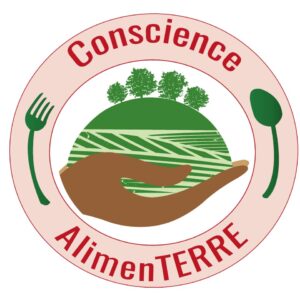
Through the AlimenTERRE Awareness Campaign, INADES-Formation aims to raise awareness among the various players in food systems of the challenges of sustainable food production, and to encourage them to take action for an agriculture that is more respectful of the Earth, biodiversity, the environment as a whole and human health.
Given the danger of chemical pesticides to soil, water and biodiversity resources, INADES-Formation calls on the government to take the following measures:
- increase the monitoring of plant protection products at border crossings ;
- make protective equipment for product users available on local markets at affordable cost;
- oversee the application of legal and regulatory provisions governing the import, marketing and use of pesticides in Togo;
- strengthen the technical and operational capacities of agencies and technical structures responsible for controlling and monitoring the import, marketing and use of pesticides, in accordance with regulatory provisions and international commitments to which Togo is a party;
- strengthen the prerogatives and operational resources of existing consultation frameworks, notably for environmental management in general and chemicals in particular;
- stimulate job creation in alternative and agroecological practices;
- strengthen public-private partnerships (PPPs) to better regulate pesticide supply chains;
- support small biopesticide production and extension units;
- facilitate access to public media for mass awareness-raising on the risks and dangers of excessive pesticide use;
- set up citizen watch systems in the various communes to monitor and report the entry, marketing and use of unregistered pesticides.
This 2024 edition of International Mother Earth Day is the 54th celebration and third of the United Nations Decade for Ecosystem Restoration. Ecosystems support all life on Earth. The healthier our ecosystems, the healthier the planet and its people. Restoring our damaged ecosystems will help end poverty, combat climate change and prevent the mass extinction of species.
Unfortunately, one day in the year is not enough to save the fauna, flora and all our beautiful environment. On the other hand, there are some very simple things we can do on a daily basis: “green actions”. Let’s get together on April 22 and every other day of the year.
Our health depends on that of Mother Earth.
Food is a right and eating is a vote!


